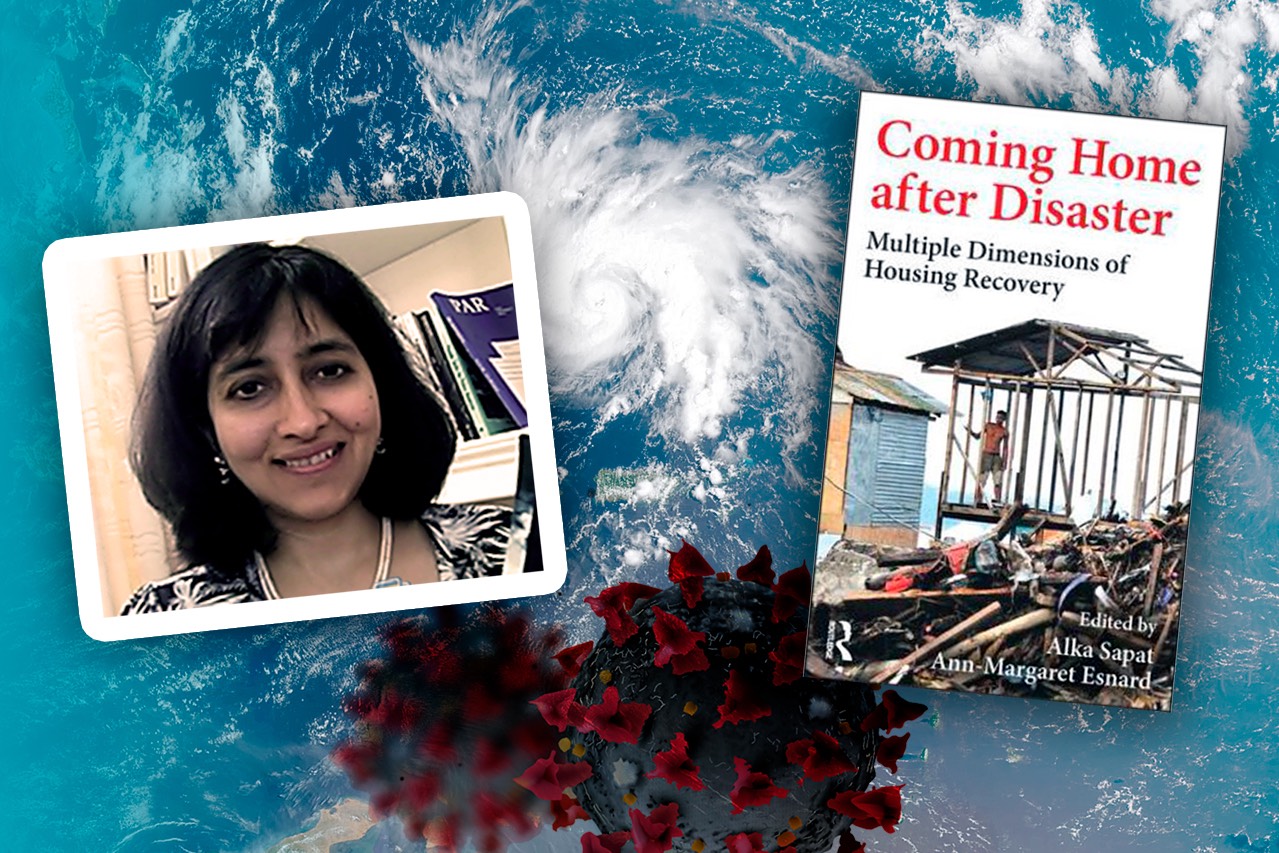Research Thursdays - Investigating the Implications of COVID-19 for Hurricane-Prone Areas
Thursday, Jul 02, 2020
Images (l/r): Alka Sapat, Ph.D.; Book cover of “Coming Home After Disaster: Multiple Dimensions of Housing Recovery,” edited by Alka Sapat; Ann-Margaret Esnard
Alka Sapat, Ph.D., director and professor in the School of Public Administration, is the lead Principal Investigator on a collaborative multi-disciplinary and multi-institutional Rapid Response Research (RAPID) grant recently funded by the National Science Foundation for $175,848. The project, titled “RAPID: Health, Housing, and Hazards: COVID-19, Subjective Resilience, Vulnerabilities, and Policy Evolution in Hurricane Prone Counties,” seeks to capture ephemeral and time-bound data on individual and household capacities to cope and adapt to myriad health, housing, economic and potential hurricane-related challenges within the context of rapidly evolving policy mandates designed to address the uncertainties stemming from the COVID-19 pandemic.
The study will focus on the areas in south and central Florida and the Panhandle affected by hurricanes Michael and Irma as well as the areas that saw an influx of refugees from Puerto Rico after hurricane Maria. The project findings are expected to have practical applications for pandemic preparedness and disaster management, specifically for socially vulnerable populations with respect to housing, sheltering and evacuation in hazard-prone areas.
“The Covid-19 pandemic can exacerbate intersectional and cumulative vulnerabilities and inequalities, particularly in hazard prone regions such as Florida.” – Alka Sapat, Ph.D., director and professor in the School of Public Administration
Sapat will collaborate with Diana Mitsova, Ph.D., associate professor in the School of Urban and Regional Planning and Ann-Margaret Esnard, Ph.D., associate dean for Research and Strategic Initiatives at the Andrew Young School of Policy Studies at Georgia State University.
This is the inaugural Dorothy F. Schmidt College of Arts and Letters Research Thursday report from the School of Public Administration with the School having recently joined the College. Sapat’s expertise encompasses disaster management, public policy processes, vulnerability and resilience assessment, and methodology. She was a research fellow with the National Science Foundation’s “Next Generation of Hazards Researchers” program and has been involved in a number of initiatives including NSF and DHS funded projects on building code regulations, disaster-induced population displacement, post-disaster housing, the role of the Haitian diaspora and NGOs in disaster recovery, port recovery, and critical infrastructure resilience. Her work has been published in Public Administration Review, the American Review of Public Administration, Natural Hazards Review, Risk Analysis, the International Journal of Mass Emergencies and Disasters, and other scholarly venues. She serves on the Florida State Disaster Housing Task Force and the Governor’s Hurricane Conference committee, along with serving on local committees on post-disaster housing initiatives
For more details on the NSF grant, visit here

Paolo Bocchini, Wenjuan Sun, Diana Mitsov and Alka Sapat. Presentation of the NSF-Funded PRAISys Project at the NSF CRISP Awardees Workshop, December, 2018.


